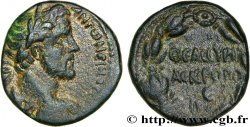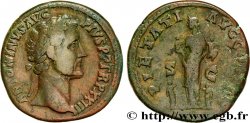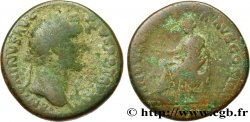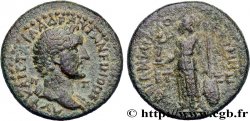brm_408546 - ANTONINUS PIUS Sesterce
Not available.
Item sold on our e-shop (2017)
Price : 950.00 €
Item sold on our e-shop (2017)
Price : 950.00 €
Type : Sesterce
Date: 151-152
Mint name / Town : Roma
Metal : bronze
Diameter : 33 mm
Orientation dies : 6 h.
Weight : 24,60 g.
Rarity : R1
Coments on the condition:
Exemplaire sur un flan large et ovale, bien centré des deux côtés. Très belle tête d’Antonin le Pieux. Joli revers de frappe un peu molle. Magnifique patine verte
Catalogue references :
Obverse
Obverse legend : ANTONINVS AVG - PIVS P P TR P XV.
Obverse description : Tête laurée d'Antonin le Pieux à droite (O*).
Obverse translation : “Antoninus Augustus Pius Pater Patriæ Tribunicia Potestate Consul quintum decimum”, (Antonin auguste pieux, père de la patrie, détenteur de la puissance tribunitienne pour la quinzième fois).
Reverse
Reverse legend : SA-LVS - A-VG COS IIII/ S|C.
Reverse description : Salus (la Santé) debout à gauche, tenant un sceptre long de la main gauche, une patère de la main droite et nourrissant un serpent enroulé autour d'un autel.
Reverse translation : “Salus Augusti Consul quartum”, (La Santé de l'auguste, consul pour la quatrième fois).
Commentary
Un seul ruban visible. Antonin acquiert sa quinzième puissance tribunicienne en 151 alors que son quatrième consulat remonte à l’année 145.







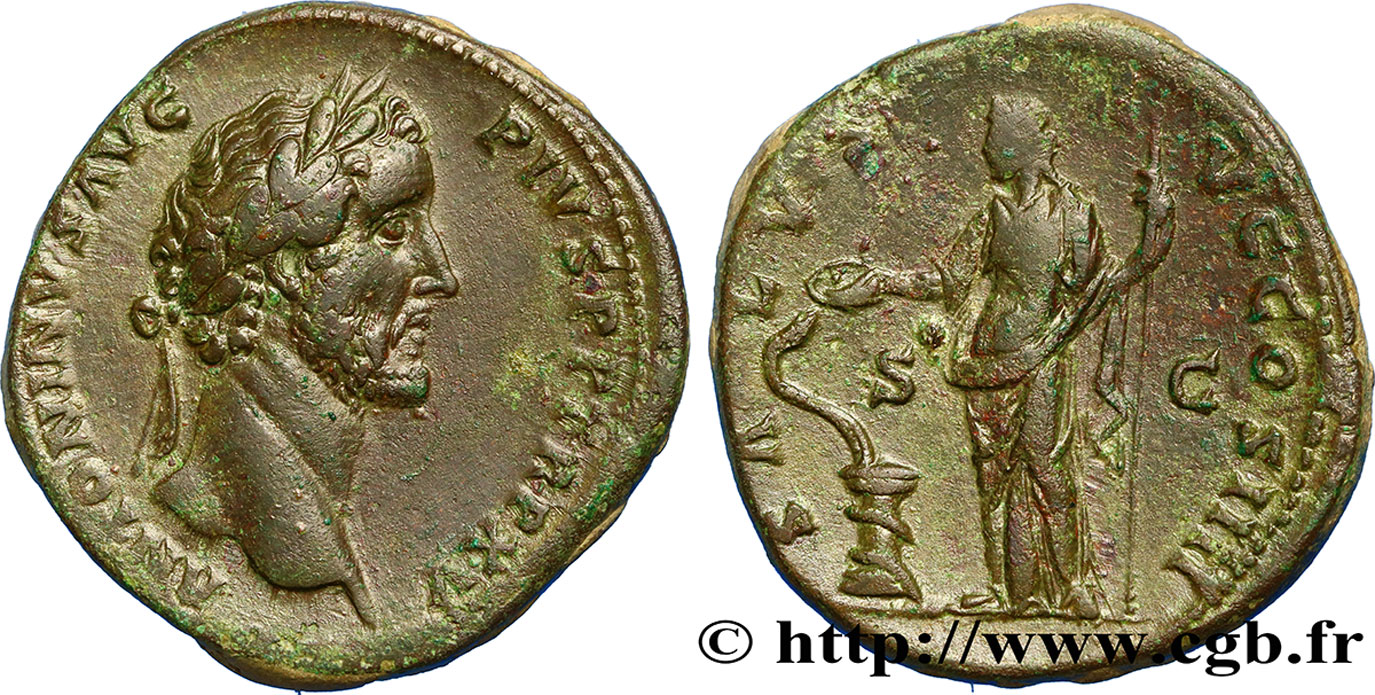
 Report a mistake
Report a mistake Print the page
Print the page Share my selection
Share my selection Ask a question
Ask a question Consign / sell
Consign / sell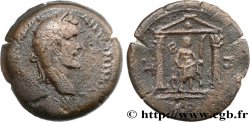
 Full data
Full data